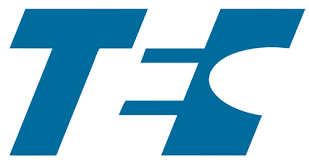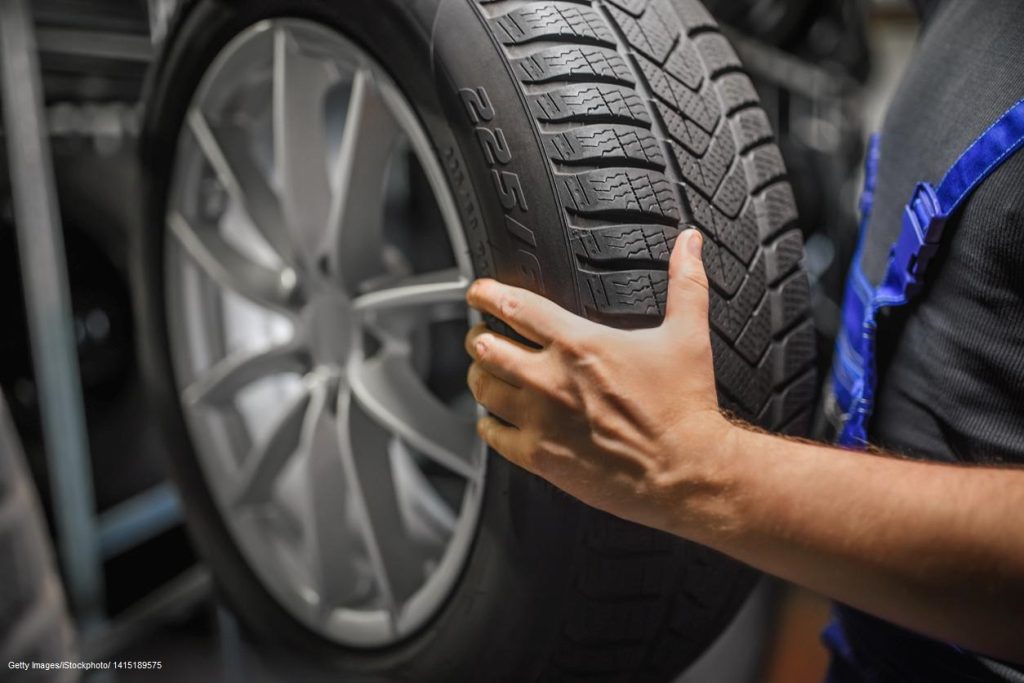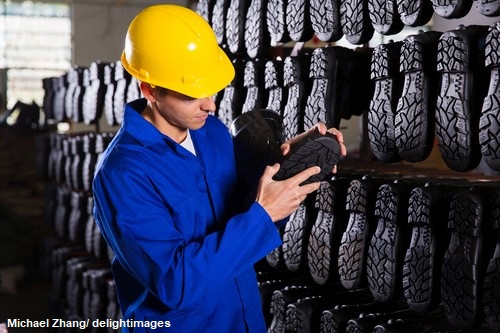New Regulations for TEC Marking
The Ministry of Telecommunications and Electronics (MoTE) in India has announced a new notice on the labeling of products under TEC certification. The updated guidelines designed to ensure consumer safety and compliance with quality standards, were released on May 22, 2023. The initiative is an important step in the Indian government’s ongoing efforts to protect consumers and promote responsible manufacturing practices in the telecommunications industry.

The notification requires manufacturers and importers to include essential information on product packaging, including the Indian Standard Mark, which indicates compliance with quality standards.
In addition, a period of 6 months was introduced during which the products must be marked in accordance with the regulations. This period starts from the date of issuance of the certificate.
Under the Indian Telegraph (Amendment) Rules of 2017, there is a mandatory certification and testing requirement for telecom products in India. TEC certification must be completed before import into India. In this process, the products must comply with the regulations called “Essential Requirements” (ER). Imported products must also be tested in accredited test laboratories in India.
If you are interested in understanding what requirements are needed for your product to be imported into India, please do not hesitate to contact us by email or phone (Europe: +49-69-271 37 69 261, US: +1 773 654-2673). There is no cost or obligation for us to check for you. If a certification need is discovered we can provide a quotation to make sure that all your certification needs are covered.
For more information about TEC certification, please refer to our free brochure “TEC Certification Made Easy“.
TEC Introduces Mandatory Security Testing for Wi-Fi CPE and IP Router Products
In its latest announcement from February 27, 2023, the Telecom Engineering Centre (TEC), which issues the eponymous TEC certification in India, has designated two new product categories for mandatory security testing. As a result, from July 1, 2023, security tests conducted under the MTCTE framework will become mandatory for the “Wi-Fi CPE” and “IP Router” product categories. This means that certification applications submitted after the effective date must include test reports that comply with the security parameters specified in the corresponding ITSARs (Indian Telecom Security Assurance Requirements) as well as other parameters listed in the Essential Requirements (ER) for these products.

It is crucial that companies that have submitted or received certification approvals before July 1, 2023 must also take steps to comply with the new safety requirements. They will need to apply for the conversion of their existing MTCTE certificates to ensure alignment with the updated security standards. To simplify this process and facilitate integration, the MTCTE portal will introduce a convenient “Certificate Change” option.
The introduction of these security tests underlines TEC’s commitment to improving the security and reliability of telecommunications equipment, particularly in the area of Wi-Fi CPE and IP router devices. By setting stringent security parameters and providing a standardised framework for testing, TEC aims to strengthen the overall security infrastructure of these important product categories in the telecommunications industry.
TEC certification has been around many years before 2019 as a voluntary certification, but since April 2019 the certification has been mandatory and every year the Telecommunication Engineering Center (TEC) expands the certification catalog and adds more telecom products. See the list of TEC standards here.
If you are interested in understanding what requirements are needed for your product to be imported into India, please do not hesitate to contact us by email or phone (Europe: +49-69-271 37 69 261, US: +1 773 654-2673). There is no cost or obligation for us to check for you. If a certification need is discovered we can provide a quotation to make sure that all your certification needs are covered.
For more information about TEC certification, please refer to our free brochure “TEC Certification Made Easy“.
BIS Certification for Automotive Wheel Rims Due to Quality Control Orders (QCO)
The Government of India has announced the implementation of several Quality Control Orders (QCO) for automotive wheel rims for the dates below. They will come into effect starting June 2023.
The table below shows an overview of different product groups of Automotive Wheel Rims for which new standards and implementation dates and thus a mandatory BIS-CRS certification are to be expected:

Overview of new standards and launch dates
| Sr. No. | Product | Indian Standard | Date of Implementation |
| 37 | Automotive Vehicles Wheel Rims for Two and Three Wheeled Vehicles Part 1 Light Alloy Wheel Rims Method of Tests and Requirements | IS: 16192 (Part 1) | 22 June 2023 |
| 38 | Automotive Vehicles Wheel Rims for Two and Three Wheeled Vehicles Part 2 Sheet Metal Wheel Rims Method of Tests and Requirements | IS: 16192 (Part 2) | 22 June 2023 |
| 39 | Automotive Vehicles Wheel Rims for Two and Three Wheeled Vehicles Part 3 Spoke Wheel Rims Method of Tests and Requirements | IS: 16192 (Part 3) | 22 June 2023 |
| 40 | Performance Requirements and Methods of Tests for Wheels for Passenger Cars | IS: 9436 | 22 June 2023 |
| 41 | Performance Requirements and Methods of Tests for Wheels or Rims for Trucks and Buses | IS: 9438 | 22 June 2023 |
If you are interested in understanding what requirements are needed for your product to be imported into India, please do not hesitate to contact us by email or phone (Europe: +49-69-271 37 69 261, US: +1 773 654-2673). There is no cost or obligation for us to check for you. If a certification need is discovered we can provide a quotation to make sure that all your certification needs are covered.
If you have any questions you can also use our chat-window in the bottom right. (Please check your browser settings if you can’t see the window)
For more information about BIS certification, please refer to our free brochure “BIS Certification Made Easy“.
BIS Certification for Low-Voltage Switchgear Due to Quality Control Orders (QCO)
The Government of India has announced the implementation of several Quality Control Orders (QCO) for Low Voltage Switch gears and Control gears for the dates below. BIS Certification becomes mandatory for these product categories.

Here you can see an overview of different product groups of low-voltage switchgear and control gear for which new standards and implementation dates and thus a mandatory BIS-CRS certification are to be expected:
| Sr. No. | Product | Indian Standard | Date of Implementation |
| 20 | Low – Voltage switchgear and control gear: Part 2 circuit – Breakers | IS/IEC 60947 :Part 2 : 2016 | 10th May 2023 |
| 21 | Low – Voltage switchgear and control gear: Part 3 switches, disconnectors, switch disconnectors and fuse – Combination units | IS/IEC 60947 :Part 3 : 2012 | 10th May 2023 |
| 22 | Low – Voltage switchgear and control gear: Part 4 contactors and motor – Starters: Sec 1 electromechanical contactors and motor – Starters | IS/IEC 60947 :Part 4 : Sec 1 : 2012 | 10th May 2023 |
| 23 | Low – Voltage switchgear and control gear: Part 4 contactors and motor – Starters: Sec 2 a.c semiconductor motor controllers and starters | IS/IEC 60947 :Part 4 : Sec 2 : 2014 | 10th May 2023 |
| 24 | Low – Voltage switchgear and control gear: Part 4 contactors and motor – Starters: Sec 3 a.c. semiconductor motor controllers and contactors for non – Motor loads | IS/IEC 60947 :Part 4 : Sec 3 : 2014 | 10th May 2023 |
| 25 | Low – Voltage switchgear and control gear: Part 5 control circuit devices and switching elements: Sec 1 electromechanical control circuit devices | IS/IEC 60947 : Part 5 : Sec 1 : 2009 | 1 May 2023 |
| 26 | Low – Voltage switchgear and control gear: Part 5 control circuit devices and switching elements: Sec 2 proximity switches | IS/IEC 60947 : Part 5 : Sec 2 : 2007 | 1 May 2023 |
| 27 | Low – Voltage switchgear and control gear: Part 5 control circuit devices and switching elements: Sec 5 electrical emergency stop devices with mechanical latching function | IS/IEC 60947 : Part 5 : Sec 5 : 2016 | 10 May 2023 |
If you are interested in understanding what requirements are needed for your product to be imported into India, please do not hesitate to contact us by email or phone (Europe: +49-69-271 37 69 261, US: +1 773 654-2673). There is no cost or obligation for us to check for you. If a certification need is discovered we can provide a quotation to make sure that all your certification needs are covered.
If you have any questions you can also use our chat-window in the bottom right. (Please check your browser settings if you can’t see the window)
For more information about BIS certification, please refer to our free brochure “BIS Certification Made Easy“.
BIS Certification for Shoes Based on Quality Control Orders (QCO)
The Indian government has announced the implementation of several Quality Control Orders (QCO) for footwear on July 1, 2023. The affected standards relate to the ISI Certification Scheme (Scheme I) of BIS certification.

BIS-ISI certification is required for many different product groups, such as electronics, household appliances, safety glass, etc.
Therefore, as of 1st July, 2023 BIS certification will also be mandatory for numerous types of shoes.
Here you can see an overview of various product groups of footwear for which new standards and mandatory BIS certification are expected:
| Sr. No. | Product | Indian Standard | Enforcement Date |
| 45 | Industrial and protective rubber knee and ankle boots | IS 5557: 2004 | 1 July 2023 |
| 46 | All rubber gum boots and ankle boots | IS 5557 (Part 2): 2018 | 1 July 2023 |
| 47 | Moulded solid rubber soles and heels | IS 5676: 1995 | 1 July 2023 |
| 48 | Rubber microcellular sheets for soles and heels | IS 6664: 1992 | 1 July 2023 |
| 49 | Solid PVC soles and heels | IS 6719: 1972 | 1 July 2023 |
| 50 | PVC sandal | IS 6721: 1972 | 1 July 2023 |
| 51 | Rubber Hawai Chappal | IS 10702: 1992 | 1 July 2023 |
| 52 | Slipper, rubber | IS 11544: 1986 | 1 July 2023 |
| 53 | Polyvinyl chloride(PVC) industrial boots | IS 12254: 1993 | 1 July 2023 |
| 54 | Polyurethane sole, semirigid | IS 13893: 1994 | 1 July 2023 |
| 55 | Unlined molded rubber boots | IS 13995: 1995 | 1 July 2023 |
| 56 | Moulded plastics footwear- Lined or Unlined polyurethane boots for general industrial use | IS 16645: 2018 | 1 July 2023 |
| 57 | Footwear for men and women for municipal scavenging work | IS 16994: 2018 | 1 July 2023 |
| 58 | Leather safety boots and shoes for miners | IS 1989 (Part 1): 1986 | 1 July 2023 |
| 59 | Leather safety boots and shoes for heavy metal industries | IS 1989 (Part.2): 1986 | 1 July 2023 |
| 60 | Canvas Shoes Rubber Sole | IS 3735: 1996 | 1 July 2023 |
| 61 | Canvas Boots Rubber Sole | IS 3736: 1995 | 1 July 2023 |
| 62 | Safety Rubber Canvas Boots for Miners | IS 3976: 2018 | 1 July 2023 |
| 63 | Leather safety footwear having direct molded rubber sole | IS 11226: 1993 | 1 July 2023 |
| 64 | Leather safety footwear with direct molded polyvinyl chloride (PVC) sole | IS 14544: 1998 | 1 July 2023 |
| 65 | Sports footwear | IS 15844: 2010 | 1 July 2023 |
| 66 | High ankle tactical boots with PU – Rubber sole | IS 17012: 2018 | 1 July 2023 |
| 67 | Antiriot shoes | IS 17037: 2018 | 1 July 2023 |
| 68 | Derby shoes | IS 17043: 2018 | 1 July 2023 |
If you are interested in understanding what requirements are needed for your product to be imported into India, please do not hesitate to contact us by email or phone (Europe: +49-69-271 37 69 261, US: +1 773 654-2673). There is no cost or obligation for us to check for you. If a certification need is discovered we can provide a quotation to make sure that all your certification needs are covered.
If you have any questions you can also use our chat-window in the bottom right. (Please check your browser settings if you can’t see the window)
For more information about BIS certification, please refer to our free brochure “BIS Certification Made Easy“.




